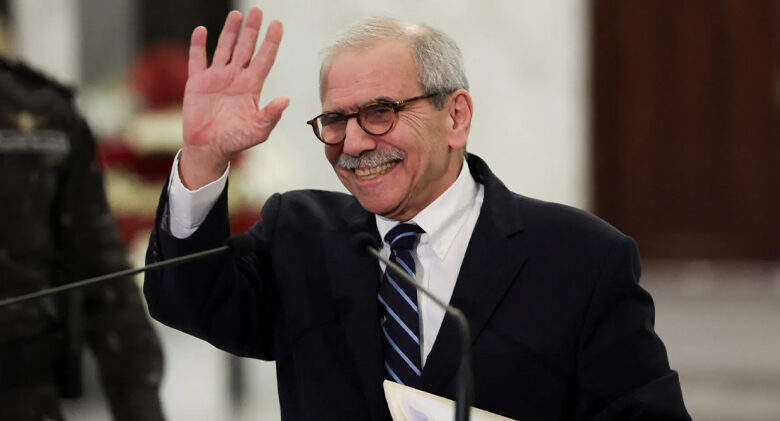
Lebanon’s Political Landscape Shifts as Majority Endorse Nawaf Salam for Leadership Role
On January 13, 2025, Lebanon witnessed a significant political shift as Nawaf Salam, the president of the International Court of Justice (ICJ), was appointed as the new Prime Minister by President Joseph Aoun. This decision comes after Salam secured the backing of a majority of lawmakers in Lebanon’s 128-member Parliament, marking a pivotal moment in the country’s ongoing struggle for stability amid economic turmoil and political fragmentation.
A New Era in Lebanese Politics
Salam’s appointment is seen as a departure from the traditional political elite that has long governed Lebanon. With 84 out of 128 members endorsing him, including key Christian and Druze factions, Salam’s rise to power signifies a growing desire for reform among the Lebanese populace. His nomination is particularly notable given the diminishing influence of Hezbollah, the Shiite political party that had previously dominated Lebanese politics and supported caretaker Prime Minister Najib Mikati for another term.Political analysts view this change as a direct response to Hezbollah’s waning power following its recent conflicts with Israel and the fall of its ally, Bashar al-Assad, in Syria. The new political landscape reflects a shift towards greater representation and accountability, as many citizens express frustration over corruption and mismanagement by established political figures.
Nawaf Salam: A Leader with International Experience
Nawaf Salam brings a wealth of experience to his new role. A distinguished diplomat and jurist, he has previously served as Lebanon’s ambassador to the United Nations and has held various positions in international law. His tenure at the ICJ has enhanced his profile on the global stage, making him a respected figure capable of navigating complex political dynamics.In his inaugural address, Salam emphasized his commitment to “rescue, reform, and rebuild” Lebanon. He expressed his intention to reach out across the political spectrum, including to Hezbollah, despite their opposition to his nomination. “I open my hands to everyone to embark together on this mission,” he stated, advocating for collaboration rather than exclusion.
While Salam’s appointment is met with optimism by many segments of society, he faces formidable challenges ahead. Lebanon is grappling with its worst economic crisis in decades, characterized by hyperinflation, unemployment, and widespread poverty. The new Prime Minister will need to implement crucial reforms to attract international support and restore stability.Additionally, Salam must navigate Lebanon’s complex sectarian landscape while forming a new government. Historically, this process has been fraught with delays due to entrenched political divisions. The Lebanese constitution requires that any cabinet reflects the country’s diverse religious sects, complicating negotiations further.
The election of President Joseph Aoun last week and the subsequent appointment of Nawaf Salam have rekindled hopes for revitalizing Lebanon’s economy and governance structure. Many citizens celebrated these developments as signs of potential change in Beirut’s Martyrs Square.As Salam embarks on this critical journey to form a government and address pressing national issues, he remains aware of the expectations placed upon him. With calls for unity and reform echoing across the nation, Nawaf Salam stands at the forefront of a new chapter in Lebanon’s political history—one that seeks to break free from past failures and build a more prosperous future for all its citizens.
